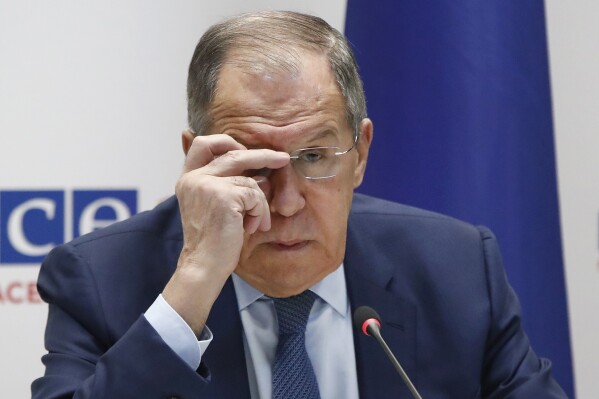North Macedonia’s government resigns ahead of general elections
SKOPJE, North Macedonia (AP) — North Macedonia’s prime minister and his cabinet formally submitted their resignations to parliament on Thursday, paving the way for a caretaker government to be installed ahead of general elections this May.
The main political parties agreed last month to hold general elections on May 8, two months early and at the same time as the second round of presidential elections.
The main opposition party, the center-right VMRO-DPMNE, had been pressing for early elections, accusing the government led by the center-left Social Democrats and their junior coalition partners of corruption, nepotism and incompetence.
The practice of forming a caretaker government 100 days before election day was established in 2015 as part of a deal between the main political parties under the mediation of the European Union to end a political crisis at the time.



Before submitting his resignation, Prime Minister Dimitar Kovachevski told reporters that “the state will maintain its strategic direction, which is the Western orientation and the strategic partnership with the USA”.
Talat Xhaferi, the current speaker of parliament, is to take over as caretaker prime minister and will be the first-ever member of the country’s ethnic Albanian minority to hold that post.
Lawmakers will accept the resignations of the current government and of the speaker on Friday, after which President Stevo Pendarovski will hand the mandate to Xhaferi to form a caretaker government.
Parliament will then vote on a new cabinet on Sunday. The current opposition will have two of a total of 20 ministers, and three deputy ministers.
North Macedonia, together with Albania, began membership talks with the European Union in 2022 and has been a candidate to join the bloc since 2005. The small Balkan country of 1.8 million must meet certain criteria to join the EU, including changing its constitution to recognize a Bulgarian minority — a highly contentious issue because of the overlapping histories and cultures of Bulgaria and North Macedonia.
Constitutional changes require a two-thirds majority in parliament.
Disclaimer: The copyright of this article belongs to the original author. Reposting this article is solely for the purpose of information dissemination and does not constitute any investment advice. If there is any infringement, please contact us immediately. We will make corrections or deletions as necessary. Thank you.

